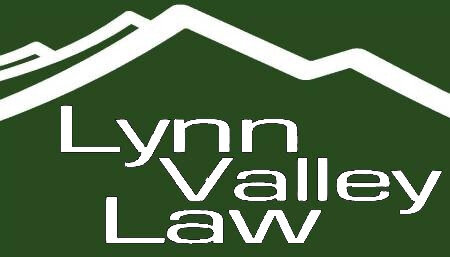Best Trusts Lawyers in North Vancouver
Share your needs with us, get contacted by law firms.
Free. Takes 2 min.
List of the best lawyers in North Vancouver, Canada
About Trusts Law in North Vancouver, Canada:
Trusts in North Vancouver, Canada are legal arrangements where a person (trustee) holds property on behalf of another person (beneficiary). Trusts are commonly used for estate planning, asset protection, tax planning, and charitable giving. Trusts can be revocable or irrevocable, and they are governed by specific laws and regulations in North Vancouver.
Why You May Need a Lawyer:
You may need a lawyer specializing in Trusts in North Vancouver if you are setting up a trust, updating an existing trust, dealing with disputes or litigation involving a trust, or seeking advice on tax implications of trusts. A lawyer can help ensure that your trust is legally sound and aligned with your goals and objectives.
Local Laws Overview:
In North Vancouver, the Trustee Act governs trusts and trustees' responsibilities. The act outlines the duties of trustees, the management of trust property, and the rights of beneficiaries. Additionally, there are specific tax laws related to trusts in Canada that can impact your estate planning strategies.
Frequently Asked Questions:
1. What is a trust?
A trust is a legal arrangement where a trustee holds property on behalf of a beneficiary.
2. How do I set up a trust in North Vancouver?
To set up a trust, you will need to draft a trust deed outlining the terms and conditions of the trust, appoint a trustee, and transfer assets to the trust.
3. What are the different types of trusts in North Vancouver?
Common types of trusts include revocable trusts, irrevocable trusts, discretionary trusts, and charitable trusts.
4. Can I be a trustee and a beneficiary of the same trust?
Yes, it is possible to be both a trustee and a beneficiary of the same trust, but careful consideration should be given to avoid conflicts of interest.
5. What are the tax implications of trusts in North Vancouver?
Trusts are subject to specific tax rules in Canada, and it is important to consult with a tax professional to understand the implications for your trust.
6. How can a lawyer help with trusts in North Vancouver?
A lawyer specializing in trusts can assist with drafting trust documents, providing legal advice, managing trust assets, and resolving trust disputes.
7. How do I choose a trustee for my trust?
When selecting a trustee, consider someone trustworthy, financially responsible, and capable of managing trust assets in the best interests of the beneficiaries.
8. Can a trust be contested in North Vancouver?
Trusts can be contested in certain circumstances, such as allegations of fraud, duress, or undue influence. A lawyer can help navigate trust disputes and litigation.
9. Is a trust the same as a will?
No, a trust is a separate legal entity that can be used in conjunction with a will for estate planning purposes.
10. How often should I review my trust in North Vancouver?
It is recommended to review your trust every few years or after significant life events, such as marriage, divorce, birth of children, or changes in financial circumstances.
Additional Resources:
For more information on trusts in North Vancouver, you can visit the British Columbia Law Institute or consult with the Law Society of British Columbia for a list of trusted legal professionals specializing in trusts.
Next Steps:
If you are in need of legal assistance regarding trusts in North Vancouver, it is advisable to schedule a consultation with a qualified lawyer experienced in trust law. They can assess your specific situation and provide tailored advice to meet your needs.
Lawzana helps you find the best lawyers and law firms in North Vancouver through a curated and pre-screened list of qualified legal professionals. Our platform offers rankings and detailed profiles of attorneys and law firms, allowing you to compare based on practice areas, including Trusts, experience, and client feedback.
Each profile includes a description of the firm's areas of practice, client reviews, team members and partners, year of establishment, spoken languages, office locations, contact information, social media presence, and any published articles or resources. Most firms on our platform speak English and are experienced in both local and international legal matters.
Get a quote from top-rated law firms in North Vancouver, Canada — quickly, securely, and without unnecessary hassle.
Disclaimer:
The information provided on this page is for general informational purposes only and does not constitute legal advice. While we strive to ensure the accuracy and relevance of the content, legal information may change over time, and interpretations of the law can vary. You should always consult with a qualified legal professional for advice specific to your situation.
We disclaim all liability for actions taken or not taken based on the content of this page. If you believe any information is incorrect or outdated, please contact us, and we will review and update it where appropriate.









